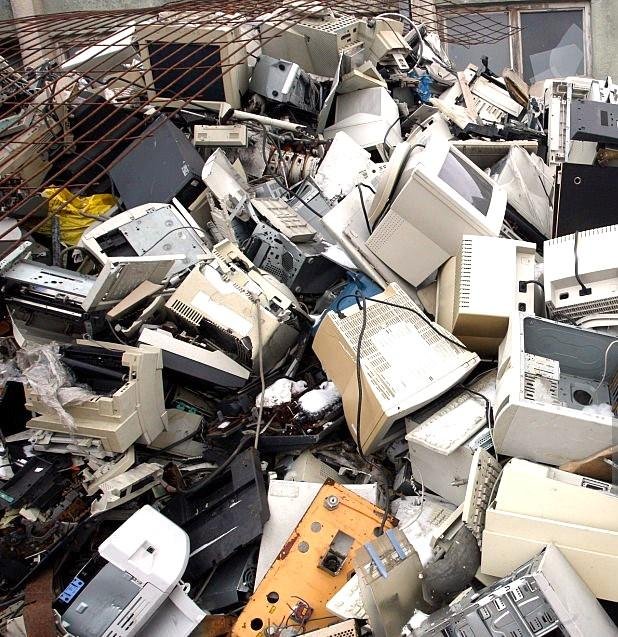You can see that rapid technological advancements have resulted in the production and usage of electronic equipment like never before. A plethora of wide-ranging electronic goods are constantly being introduced to the market. At the same time, consider the most effective E-waste management strategies and use them to your advantage. By doing so, you can easily get rid of the redundant ones, recycle them, and make the most of the latest versions. Here we will discuss what e-waste is, the importance of e-waste management, and the best strategies that businesses can implement. So read on…
What is E-waste
Electronic waste aka E-waste refers to non-usable electrical goods such as mobile phones, printers, computers, smart home appliances, and other similar devices. Most of these have harmful materials like cadmium, mercury, lead, and brominated fire retardants. These materials can cause severe health and environmental hazards if you don’t handle them properly. Today e-waste is considered the rapidly growing waste stream across the globe.

Importance of E-waste management
E-waste management has become a rising concern as the latest technological advancements make us quickly replace our existing electronic goods with new ones. As a result, more e-waste or junk gets piled up, requiring adequate E-waste disposal/ management practices.
It is no surprise that Information and Communication Technology aka ICT is the major sector that contributes to most of the e-waste you see around today. Adding to that, there are several other modern industries also that are major contributors. They are also responsible for the huge quantity of e-waste that is being mounted up. Therefore, businesses and modern sectors must come together and realize the urgency of proper E-waste disposal initiatives.
Useful E-Waste Management strategies for businesses
Fortunately, you can curb the ongoing concern in the right way if you adhere to three main principles or in better words, the three pillars of e-waste management. Now let us take a look at what are these:
- Reduce E-waste disposal
You can reduce e-waste by reducing its generation. The best way to do this is to encourage consumers to cultivate a mindset of buying less and using more. This applies to individuals and businesses alike. You can imagine how effective this can turn out to be if everyone follows such a practice. This can be easily done by buying high-quality, branded, durable, and easily repairable electronic goods. It will be worth your investment and will also minimize the generation of e-waste in a very sizable manner.
- Minimise E-waste with reuse
With reuse, you can easily extend the lifespan of electrical devices. You don’t have to discard them which adds up to e-wastage quickly. Companies and business organizations should encourage the usage of electrical devices that can be quickly disassembled, repaired, upgraded, and reused. By doing so they can rest assured of the extended lifespan of the devices. Needless to say, this will be great to maintain a sustainable approach.
- Recycling of E-waste

Another useful strategy that businesses can use is to implement effective recycling systems. The right way to do this is to team up with a professional E-waste management company. Recycling will help you to easily recover and reuse the valuable parts. The more you extract and make use of the usable parts, the lesser will be the total e-waste that consists of completely redundant items. This approach must be encouraged more as it helps in creating a more sustainable environment devoid of unwanted and excess junk e-waste materials.
- Adopting the circular economy approach
It is highly recommended that businesses make the required shift from the linear economy approach i.e. take, use, and dispose style to the circular economy approach. You can see that the circular economy approach places more emphasis on using devices with durability, repairability, and most importantly recyclability in mind. Businesses should partner with suppliers/merchants who can provide them with electrical goods that have longer lifespans and thus more scope for recycling.
- Spread awareness for e-waste recycling
Businesses should focus on spreading awareness for e-waste recycling and implementing adequate informational programs. Employees should also be provided with proper education regarding the importance of proper e-waste management.
The prime activities of an E-waste management company
You can see that an e-waste management firm handles the recycling process through two main phases:
- Manual collection & processing
This is the phase where the e-waste is collected and then subjected to various procedures such as sorting, cleaning, separating, dismantling, and finally segregation.
- Mechanical processing
This is the phase where the E-waste management company indulges in more comprehensive steps such as shredding and selective treatment.
E-waste recycling companies in India
We are living in a digital age and the quantity of e-waste getting piled up is becoming so huge than ever before. Only a handful of professional e-waste management companies are out there now with the proper technical know-how and professional expertise. This is why it is true to say that E-waste management in India holds a promising future.
With a much broader public awareness regarding the importance of effective e-management initiatives and the active participation of various businesses, E-waste management in India will be able to function at its best. This is the need of the hour because only then we can ensure a sustainable environment and also minimize the hazards of excess e-wastage in our country.
With more stringent compliance policies, advanced technologies, and the active participation of private sector players, E-waste management in India is expected to boom in the coming years. Both the government and corporate businesses must understand the importance of e-waste management. This will help to create more streamlined and effective procedures.
Conclusion
Ultimately you can see that corporate responsibility is not limited to ensuring the right profit margins. It must also be extended to ensure sustainable and ethical practices. Nowadays E-waste management is a major global concern. This is why businesses are required to lead by example. They should be able to take the right steps and help resolve the ongoing issue in the best possible ways.


